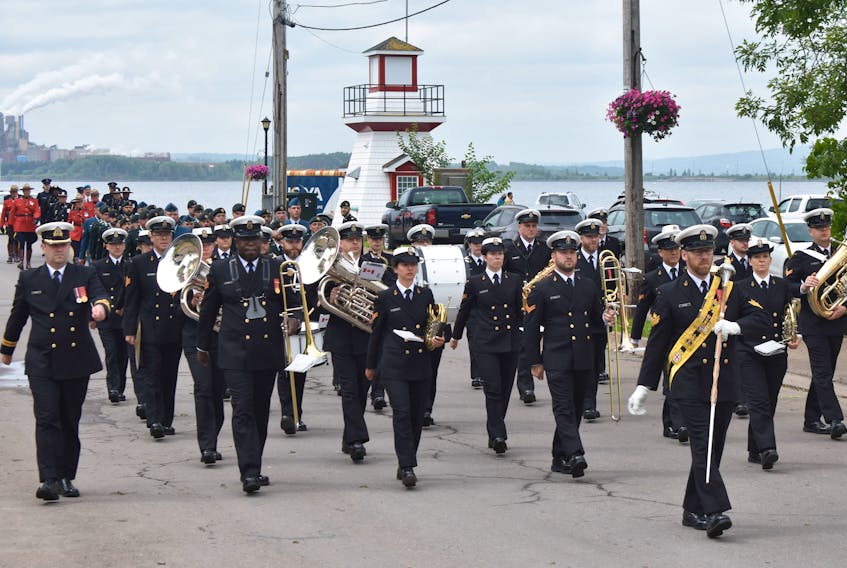PICTOU, N.S. — They were told it was not their war.
When fighting broke out in 1914 beginning the First World War, the Canadian government called young men to arms and thousands answered the call. Among those volunteers were black men.
“They too felt the fervor. They too felt the desire to stand for this country,” said Douglas Ruck, son of the late Senator Calvin Ruck, as he addressed a crowd gathered at the deCoste Centre in Pictou to honour the history and legacy of the No. 2 Construction Battalion. “But they were told ‘This is not your war.’ They were told, ‘This is a white man’s war.’”
It’s a legacy that Calvin Ruck had championed to preserve and now is carried on by others including Douglas Ruck who marked the 26th Commemoration Ceremony for the No. 2 Construction Battalion on Saturday, July 13.
Ruck shared how these black men had to fight for the right be able to join the military before finally being granted permission in 1916. But even though they were enabled to enlist, they were not treated as equals.

“It was not felt appropriate that they should be armed. It was not felt appropriate that they should be trained as soldiers. If they were to be part of the Canadian Expeditionary Force it was to be with picks and shovels,” Ruck said. “Their job was to do the manual labour. It was very important, undeniably important, but it was not necessarily what they had signed on for.”
Still with pride they put on the uniform and served. The No. 2 Construction Battalion officially formed on July 5, 1916, with headquarters in Pictou.
Ruck said, it’s important that the reasons for their treatment should not be forgotten.
“Slavery was so deeply rooted in North America that even following abolition, these men were still viewed as being ‘less than.’ So, when they tried to join the military and they were told it’s not your war, it was really echoing what had been a tradition or pattern in this country for 200 years.”
These 600 black men who made up the No. 2 Construction Battalion, felt if they joined the military and fought for their country, that they would receive respect and receive a sense of equality. But, unfortunately, Ruck said, they came home to face many of the stereotypes they had hoped to destroy.
Still their legacy had an impact.
Minister of African Nova Scotia Affairs & Public Service Commission, Tony Ince, spoke about the diversity that is now in the Canadian military and gave credit to these men who fought to be a part.
Ruck hopes that those accomplishments are never forgotten.
“To forget it or set aside means whatever achievements have been made, whatever advances have been put in place, will be lost,” he said. “That’s why we’re here today. That’s why we must talk about the No. 2 Construction Battalion.”









